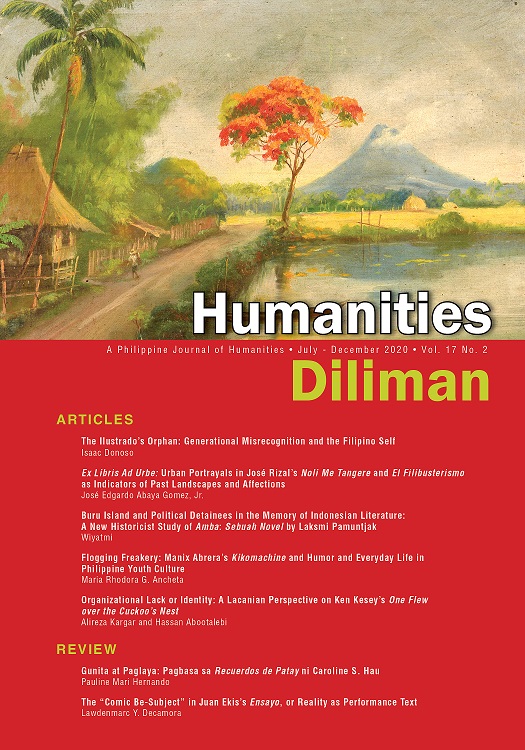The Ilustrado’s Orphan: Generational Misrecognition and the Filipino Self
Abstract
From being the language of the first Republic of the Philippines, Spanish
practically vanished in the archipelago. Its disappearance was not a natural
process, but a projected program aimed at erasing its role in building the
Philippine nation and the Filipino self, starting from childhood. By constructing
a new historical narrative and pedagogical intervention taught to infants, the
United States of America created a generational break between Filipinos that
ended in the estrangement with the written national heritage. This paper focuses
on the beginnings of the process towards de-Hispanization during the first part
of the American period, and the human and cultural consequences of such for
generations of orphans without forefathers.
Published
2021-03-22
How to Cite
DONOSO, Isaac.
The Ilustrado’s Orphan: Generational Misrecognition and the Filipino Self.
Humanities Diliman: A Philippine Journal of Humanities, [S.l.], v. 17, n. 2, mar. 2021.
ISSN 2012-0788.
Available at: <https://www.journals.upd.edu.ph/index.php/humanitiesdiliman/article/view/7481>. Date accessed: 03 sep. 2025.
Issue
Section
Articles
Keywords
ilustrado, liberalism, education, Spanish, English, American imperialism, generations, childhood, diglossia, heritage


